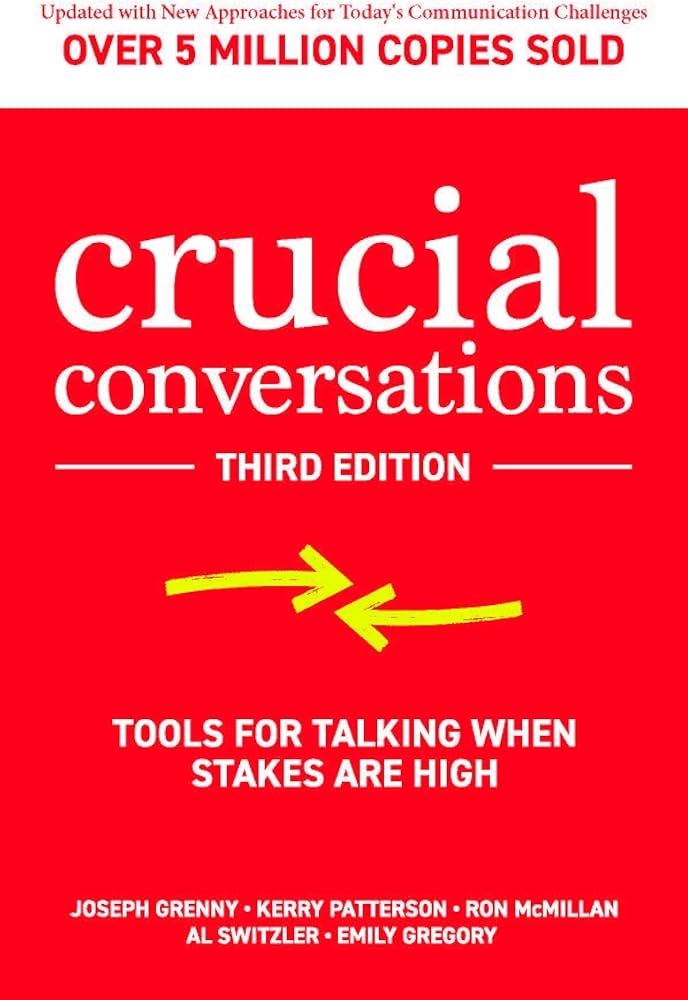The best way to minimize the number of crucial conversations you have in life is to have a meaningless life. As soon as you go after something important, the crucial conversations will occur.
In Crucial Conversations: Tools for Talking When Stakes are High, authors Joseph Grenny et al share strategies and tools for having tough conversations especially when the stakes are high and emotions are running high. The book provides a toolkit for mastering high-stakes conversations, no matter the topic or the person.
